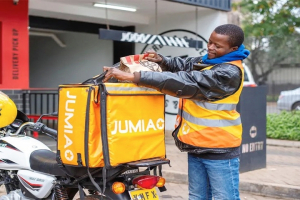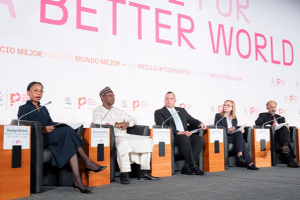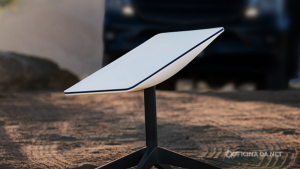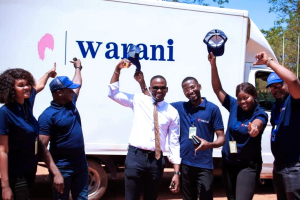Morocco: Mohamed Benmansour Streamlines Hotel Booking for Businesses
Mohamed Benmansour, a Moroccan technology entrepreneur, creates digital tools to simplify business operations and improve everyday life in Africa. He founded Nuitée Travel in 2017, an online platform that helps travel agencies and airlines book hotel rooms for their clients through a direct connection to hotels.
“Our infrastructure allows developers to seamlessly integrate hotel booking features, simplify integration, and unlock unlimited possibilities,” Benmansour says. His API-based system links hotels to travel agencies, letting partners customize their own booking interfaces, control pricing, and manage their audience.
Nuitée Travel aggregates offers from 2.2 million properties worldwide, including hotel chains, independent hotels, global distribution systems, and channel managers. Through modular APIs and white-label solutions, it enables businesses to keep full control over their brand while offering a streamlined booking experience.
Benmansour’s entrepreneurial journey began with Safarclick Travel Group, an online travel agency he founded in 2009. A year later, he co-founded Superdeal.ma, a Moroccan group-buying site. In 2013, he launched Ticket.ma, an online ticketing service. In 2014, he introduced Binga, a digital payment platform that lets businesses and government offices accept cash payments at local points of sale.
Before starting his ventures, Benmansour earned a master’s degree in electrical engineering from the Rochester Institute of Technology in 2004. He then worked as an application engineer at Silicon Laboratories in the U.S. that same year, before joining Kawasaki Microelectronics as a senior analog design engineer until 2009.
Melchior Koba
Peter N. Kironji Connects SMEs and Influencers Through Twiva
Peter N. Kironji builds bridges between small businesses and social media influencers to boost online sales. He focuses on turning ideas into real opportunities through digital commerce.
Kironji, a Kenyan tech entrepreneur and engineer, co-founded and leads Twiva, a social commerce platform that uses influencer marketing. Twiva links small and medium-sized enterprises (SMEs) and micro-businesses with micro-influencers and content creators who promote and resell products on social networks.
Launched in 2020, Twiva lets anyone become a reseller or influencer. Users create an account, pick products, and share them on Facebook, Instagram, WhatsApp, and other platforms. Influencers earn commissions between 5% and 10% per sale, generating income while expanding businesses’ reach.
For businesses, Twiva offers a centralized interface. It manages online stores, tracks influencer campaigns, and automates sales and payments. The platform consolidates product management, marketing, transactions, and reporting to make digital commerce easier for local companies.
Kironji earned a bachelor’s degree in electrical engineering and computer science from the University of Toronto in 2017. He completed a master’s in data science, technology, and innovation at the University of Edinburgh in 2021.
Before Twiva, Kironji worked as an IT assistant at the University of Toronto starting in 2016. In 2018, he joined IAMConcepts, a Canadian cybersecurity firm, as an information systems security specialist. Between 2020 and 2021, he worked as a cybersecurity engineer at KeyData Associates.
Melchior Koba
Côte d’Ivoire’s Yannick De Gonzague Streamlines Business Payments Across Africa
Yannick De Gonzague aims to make financial services accessible to every business in Africa. His mission is clear: help companies manage payments simply, securely, and efficiently, no matter their size or sector.
De Gonzague, a key player in Côte d’Ivoire’s tech and finance ecosystem, founded Vision Digital Finance in 2024. The platform acts as a payment aggregator, enabling companies to send, receive, and control financial flows across more than 12 African countries.
Vision Digital Finance offers a wide range of services tailored to business needs. The platform supports multi-channel collection through mobile money, bank cards, transfers, and QR codes. It also provides international transfers, personalized virtual IBANs, real-time dashboards, and automation APIs to simplify accounting and transaction workflows.
The system handles over ten payment methods and supports more than six currencies, ensuring wide regional compatibility.
De Gonzague earned an engineering degree in network and systems administration in 2008 from ESTEM in Morocco. He started his career a year earlier, in 2007, at CodCom, a Moroccan IT firm, where he worked as customer service manager.
In 2009, he joined Access Bank Côte d’Ivoire as account manager for large enterprises. Three years later, he moved to UBA Bank as profit center manager.
By 2016, he transitioned into the tech-finance space, taking the role of marketing and partnership manager at NSIA Technologies, the tech arm of the NSIA banking group.
He then worked for leading fintech firms like Flutterwave, Wave Mobile Money, and Clapay, where he held senior roles including operations and partnerships manager, commercial development director, and operations director in Côte d’Ivoire.
Melchior Koba
Jumia Exits South Africa and Tunisia Amid Strategic Realignment
With an increasing number of young, tech-savvy consumers and rising internet penetration across the continent, Jumia’s strengthened presence could drive significant growth and innovation, ultimately contributing to the development of Africa’s broader eCommerce ecosystem.
On October 16, Jumia Technologies AG, the African eCommerce giant, announced plans to cease its operations in South Africa and Tunisia by the end of 2024. This strategic move aims to optimize resource allocation, allowing the company to concentrate on core markets with higher growth potential, such as Nigeria, Kenya, Egypt, and Morocco. The decision follows a thorough review of Jumia’s operations led by CEO Francis Dufay.
Explaining the move, Dufay said, “After a thorough analysis, we made the difficult decision to close down our operations in South Africa and Tunisia. The macroeconomic conditions in both markets, coupled with stiff competition, have limited growth potential.” In 2023, Jumia's South African arm, operating under the brand Zando, and its Tunisian operations contributed only 3.5% and 2.7% of total orders, respectively, underscoring their minimal impact on the company’s overall performance.
This closure aligns with Jumia's broader effort to streamline operations and enhance profitability amid challenging market conditions and competitive pressures. As the company refocuses on its core markets, it aims to leverage its marketplace, logistics network, and JumiaPay platform to drive sustainable growth in Africa’s most promising regions. This pivot reflects Jumia's commitment to adapting its strategy to navigate complex market dynamics and return to profitability.
According to the Africa E-Commerce Market Size, Share, Trends 2024-2032 report by the IMARC Group, the market is projected to reach $939.8 billion by 2032, growing at a compound annual growth rate (CAGR) of 14.4% from 2024 to 2032. This rapid expansion highlights the increasing role that online shopping will play in Africa's future, fueled by rising internet access, growing mobile penetration, and a youthful, tech-savvy population.
Hikmatu Bilali
UN Suggests Measures to Boost E-commerce in Africa’s Landlocked Nations
Landlocked African countries heavily rely on neighboring nations' markets, infrastructure, and institutions, making them economically vulnerable. To enhance their economic resilience, the adoption of new trade facilitation methods is crucial.
On September 10, Botswana's permanent mission in Geneva, Switzerland, organized a forum to discuss strategies for boosting digital trade in landlocked countries. The event was organized under the theme ‘Overcoming Geography: Digital Trade in Landlocked Developing Countries (LLDCs),’ on the fringes of the World Trade Organisation (WTO) Public Forum 2024. It focused on how to meet the unique challenges faced by landlocked nations, particularly in Africa, to participate in global trade.
Torbjörn Fredriksson, head of e-commerce and the digital economy at the United Nations Conference on Trade and Development (UNCTAD), explained that there is a need for “ more investment in ICT infrastructure, strengthening the capacity of policymakers to put in place a favorable legal environment, intensify efforts to improve digital and financial literacy and other skills, including through more effective public-private collaboration, and strengthen support for improved trade logistics and trade facilitation, including paperless cross-border trade.”
Vuyile Dumisani Dlamini, Eswatini's Permanent Representative, stressed the need to invest in “ a robust digital infrastructure coupled with a vibrant skills development and supportive regulatory environment, including international cooperation.” He justified this approach given the importance of digital commerce, which “can help to reduce trade costs, improve market access and foster economic growth.”
Moderating the discussion, Gerelmaa Davaasuren, Mongolia's Ambassador and Permanent Representative to the United Nations, said that it is also necessary “to fully digitize customs processes to reduce the high trade costs faced by landlocked countries due to their lack of direct access to the sea.”
During the discussion, emphasis was also placed on the potential of the creative industry in digital trade, advocating collaboration with various organizations to improve transactions. The formation of alliances was suggested as a way of streamlining support and funding efforts. In addition, the disparity in ownership of digital devices between developed and developing regions was noted, underlining the importance of equitable access to digital resources.
There are currently 32 landlocked developing countries in the world, 17 of which are classified as least developed countries. According to the World Bank report ‘Improving Trade and Transport for Landlocked Countries’, one of the characteristics of these countries is their low per capita income compared to neighboring transit countries. They are often heavily dependent on the markets, infrastructure, and institutions of their neighbors, making regional cooperation and investment in digital trade vital to their economic growth.
Hikmatu Bilali
Konga, Starlink Partner to Expand Satellite Internet in Underserved Nigeria
Konga, a leading Nigerian online marketplace, has announced a strategic partnership with Starlink to provide satellite internet services to underserved areas across the country. This collaboration is aimed at bridging the digital divide by delivering reliable, high-speed internet connectivity to regions with limited or no terrestrial internet coverage.
As the only authorized shop-in-shop for Starlink in Nigeria, Konga is enthusiastic about the potential impact of this partnership. Through their partnership, Konga and Starlink are playing a pivotal role in ensuring that all Nigerians can benefit from the transformative power of the internet.
Rwanda Partners with DCI to Support Women-Led Enterprises
Through the WE-Elevate Rwanda program, Rwanda is partnering with Digital Commerce International (DCI) to help women-led micro, small, and medium enterprises (MSMEs) boost productivity via online commerce.
The initiative aims to help these businesses transition to e-commerce, expanding their market reach and growth potential. Women-led enterprises in Rwanda are encouraged to sign up to benefit from this program.
Applications close by August 4.
Nigeria to Regulate E-Commerce and Introduce Cyber Insurance
Establishing regulations that align with international best practices can help African e-commerce platforms improve their competitiveness on the global stage. This can facilitate cross-border e-commerce and open up new markets for businesses on the continent.
The Nigerian government plans to regulate e-commerce platforms and introduce cyber insurance for users. This initiative is part of the draft National Digital Economy and E-Governance Bill under review by the National Assembly.
Sponsored by the Ministry of Communications, Innovation, and Digital Economy, the Bill is in the public engagement phase. It requires e-commerce platforms to provide clear and accurate information about sellers, goods, services, and transaction terms.
During a media engagement in Abuja on July 9, Minister of Communications, Innovation, and Digital Economy Dr. Bosun Tijani said the Bill would create a legal framework to accelerate Nigeria's digital economy. "This Bill will support the growth and transformation of Nigeria’s economy through technology," he said.
Section 40 of the Bill mandates the National Insurance Commission (NAICOM) and the National Information Technology Development Agency (NITDA) to develop cyber insurance regulations for electronic commerce.
Section 39 specifies that e-commerce sellers must provide legal names, addresses, and contact details, ensuring effective consumer communication and legal process service. It also mandates detailed descriptions of goods or services and clear terms and conditions, including payment methods, returns, and refund policies.
If passed, major e-commerce platforms, as well as smaller players, would face stricter regulations and potential new taxes and levies imposed by NITDA. Non-compliance could result in fines.
The proposed legislation is poised to impact the country's rapidly growing e-commerce sector significantly. According to the European Company Database (ECDB) report titled eCommerce Market in Nigeria, this sector is expected to generate $2.68 billion in revenue by 2024 and grow at a compound annual growth rate of 12.8%, reaching $4.34 billion by 2028.
Hikmatu Bilali
Malian Startup Sodishop Brings Online Shopping Convenience to Guinea and Beyond
Founded by a Guinean IT specialist, the solution was launched to enable easy access to a wide range of products. It now claims a presence in four West African countries.
Malian startup Sodishop, an e-commerce platform that allows users to purchase a variety of items online, was launched in 2019 by Guinea-born IT specialist Boubacar Biro Baldé. The platform, based in Bamako, offers Guineans the opportunity to order products from other countries in the sub-region, such as Mali, Senegal, and Côte d’Ivoire, with delivery in less than 72 hours.
“Our brand new Made in Africa marketplace now enables local Guinean brands to sell and deliver throughout Africa and anywhere else in the world,” Baldé explained.
The platform, whose Android app has been downloaded more than 10,000 times according to the Play Store, features a mobile application available on iOS and Android. While users can browse the platform without an account, one is required to place orders. The site offers a wide array of products, including food, computers, phones, gadgets, fashion items, hygiene products, and school kits.
Sodishop has integrated payment solutions such as Orange Money, Paypal, and bank cards like Visa and Mastercard. Speaking to Guineenews in August 2023, Baldé revealed that since its launch, the startup has processed over $4 million in orders and averages $500,000 in annual sales through its sellers.
“We are present in four countries in West Africa. Mali and Guinea since 2019 and 2020 respectively, Senegal since 2022, and we’ve been operational in Côte d’Ivoire since early 2023,” Baldé said.
Sodishop has received numerous awards, including the prize for the best online sales platform in Mali at the 2022 Africa Business Excellence Awards. That same year, it participated in the Top 35 MEST Africa Challenge Ghana. In 2023, it was selected as one of the Top 11 in the Afritech Startupbootcamp ASIP program, receiving technical support worth $750,000 and a three-month acceleration program in Dakar, Senegal.
Adoni Conrad Quenum
Warani revolutionizes e-commerce in the Central African Republic
Despite being democratized, the Internet is still not easily accessible in some African countries. Nevertheless, some tech entrepreneurs are doing their utmost best to offer connected populations tailor-made solutions and services.
Warani Shop is an e-commerce application developed by a Central African startup. It enables users to make online purchases and have them delivered to the address indicated during the ordering process. The Bangui-based start-up was founded in 2023 by Vianney Kanda.
"After numerous reflections on some of the problems faced by Central Africans, notably in accessing quality products, or getting products delivered, I decided to create Warani, which is a bridge between the customer and the seller. [...] Warani's main objective is to allow access to services and products for Central Africans," says Vianney Kanda.
Through the Warani mobile app –for Android and iOS devices, a user can create an account to access the services offered by the solution. From cosmetics and beauty products to kitchenware, hardware, loincloths and clothing, Warani Shop is a comprehensive online boutique. It integrates several payment methods, such as Visa card, Orange Money, or even cash on delivery.
Given that internet penetration is low in the Central African Republic –10.58% in 2021, according to the International Telecommunications Union– the startup has dedicated a number for orders by phone. Since its launch on Saturday, September 9, 2023, the Android version of its mobile app has already been downloaded more than a hundred times, according to Play Store data.
Adoni Conrad Quenum











